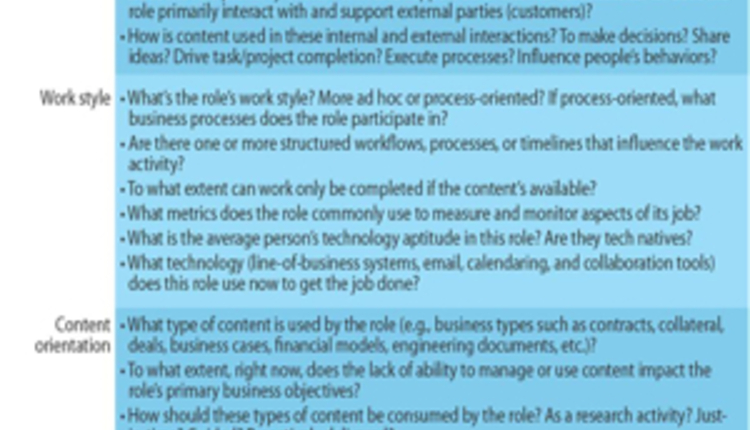The need for smart process apps are pushing social and dynamic case management together.
Organizations need to shift from isolated enterprise social projects to a process-oriented view that drives business outcomes. Smart process apps—an emerging $34 billion software category designed to support people-intensive, highly variable and loosely structured business processes—will drive this renewed focus. Smart process apps will package enterprise social platforms, mobility and dynamic case management (DCM) to serve goals of innovation, collaboration and workforce productivity and to connect to core business processes.
Packaged apps, like customer relationship management (CRM), view customers in an inhuman way—as a step in a path or funnel to the next possible dollar. Human capital management systems reduce individuals to a set of rows in a table. In both cases, enterprise social can lift a process to the human level through use of instant messaging, capturing email strings, providing videoconferencing, analyzing activity stream, providing video sharing and enhancing communication through microblogging. However, this requires constructing a smart process app that integrates social and mobile with business processes, and today, very few enterprises have done so.
So why isn't this so? Based on Forrester interviews, there are a few top barriers that rise to the surface:
1. Enterprises are not comfortable with the security of enterprise social platforms. Social networking sites assume the individual owns the data or that data is there for sharing or commercial use. By contrast, DCM has strong enterprise content management roots and provides a security and compliance layer that is rock solid and accepted by most enterprise architects.
2. IT may be pushing the capability without the correct focus on core process problems.
3. Behavioral change is too difficult in some cases. Many highly structured processes have been in place for decades—with system upgrades that have largely left the process intact, and these are hard to change.
4. Core processes do not "listen" to the outside world. Processes today depend on embedded workflows or case rules to guide internal actions and events, but social input from outside or inside data can recommend action and launch a process path.
5. Email and social activity streams are not mined for core process improvement. Most collaboration today is done through email, which is largely not captured in the business process. This is part of what makes processes untamed. To drive productivity and customer experience metrics, you need to exploit value from the social layer.
The need for smart process apps is pushing social and DCM together. Enterprise social today mostly provides a poorly organized mass of miscellaneous information that supports business outcomes in a peripheral manner. Tomorrow's processes will more astutely blend the strengths and weaknesses of both.
Tomorrow's smart process apps will support the new process boundaries and employ social and mobile technology with front-office and back-office integration supported by case management and business process management. Forrester expects that enterprises will invest $34 billion in smart process apps by 2015, a compound annual growth rate (CAGR) of 18%—almost twice the 11% CAGR for the global software market as a whole. Smart process apps are a new category of application software designed to support business activities that are people-intensive, highly variable, loosely structured and subject to frequent change.
For an example of a smart process app, a large coffee chain implanted an investigative case management solution to enforce quality at its 10,000-plus retail locations. Prior to implementation of this smart process app, inspectors would fill out a paper form, return to the office, enter data into a core system and possibly have a conversation with the store manager in two weeks. The smart process app uses a tablet, takes videos and pictures, allows immediate input of data and is controlled by a case management platform.
DCM and social show potential at the operations level for surveyed enterprises—achieving complex business outcomes is the current sweet spot. However, the future will see social and DCM combine in a number of other ways, like providing the right tools for the emerging workforce; connecting social content with the right people, processes and core system data; and empowering workers with full customer histories.
CRAIG LE CLAIR is a vice president and principal analyst at Forrester Research, serving enterprise architecture professionals. For more, visit www.forrester.com/Craig-Le-Clair.














